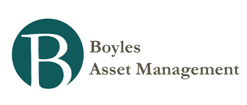Money and Finance
- The State Of Long-term Expectation
Chapter 12 (“The State of Long-Term Expectation”) of John Maynard Keynes’ The General Theory of Employment, Interest and Money is one that seems good to go back and re-read every now and then. Jeremy Grantham mentioned it in his interview with Charlie...
- Barry Schwartz Interview
Found via Simoleon Sense. The European: The classical economic point of view is that peoples’ decisions results from a careful weighing of what will create the most desirable result. What do you advocate? Schwartz: Well, I think this picture is completely...
- Why We’ll Always Have More Money Than Sense - By Robert Shiller
When it comes to market bubbles and how they are created, very little, if anything, has changed. This is because human psychology has not changed. Massive bubbles are created when large numbers of people buy into "new era" stories that exaggerate how...
- An Echo Chamber Of Boom And Bust - By Robert J. Shiller
THE global signs of a recovery in economic confidence seem puzzling. It is a large and diverse world, after all, so why should confidence have rebounded so quickly in so many places? Government stimulus and bailout packages have generally not been big...
- Robert Shiller On Wealthtrack
...
Money and Finance
Robert Shiller: Animal Spirits Depend on Trust
The term "animal spirits," popularized by John Maynard Keynes in his 1936 book "The General Theory of Employment, Interest and Money," is related to consumer or business confidence, but it means more than that. It refers also to the sense of trust we have in each other, our sense of fairness in economic dealings, and our sense of the extent of corruption and bad faith. When animal spirits are on ebb, consumers do not want to spend and businesses do not want to make capital expenditures or hire people.
...
A critical aspect of animal spirits is trust, an emotional state that dismisses doubts about others. In talking about animal spirits, Keynes sought to convey the message that swings in confidence are not always logical. The business cycle is in good part driven by animal spirits. There are good times when people have substantial trust and associated feelings that contribute to an environment of confidence. They make decisions spontaneously. They believe instinctively that they will be successful, and they suspend their suspicions. As long as large groups of people remain trusting, people's somewhat rash, impulsive decision-making is not discovered.
-
Unfortunately, we have just passed through a period in which confidence was blind. It was not based on rational evidence. The trust in our mortgage and housing markets that drove real-estate prices to unsustainable heights is one of the most dramatic examples of unbridled animal spirits we have ever seen.
Unfortunately, we have just passed through a period in which confidence was blind. It was not based on rational evidence. The trust in our mortgage and housing markets that drove real-estate prices to unsustainable heights is one of the most dramatic examples of unbridled animal spirits we have ever seen.
-
....................
-
Related books:
-
Animal Spirits: How Human Psychology Drives the Economy, and Why It Matters for Global Capitalism
-
The General Theory of Employment, Interest, and Money
-
- The State Of Long-term Expectation
Chapter 12 (“The State of Long-Term Expectation”) of John Maynard Keynes’ The General Theory of Employment, Interest and Money is one that seems good to go back and re-read every now and then. Jeremy Grantham mentioned it in his interview with Charlie...
- Barry Schwartz Interview
Found via Simoleon Sense. The European: The classical economic point of view is that peoples’ decisions results from a careful weighing of what will create the most desirable result. What do you advocate? Schwartz: Well, I think this picture is completely...
- Why We’ll Always Have More Money Than Sense - By Robert Shiller
When it comes to market bubbles and how they are created, very little, if anything, has changed. This is because human psychology has not changed. Massive bubbles are created when large numbers of people buy into "new era" stories that exaggerate how...
- An Echo Chamber Of Boom And Bust - By Robert J. Shiller
THE global signs of a recovery in economic confidence seem puzzling. It is a large and diverse world, after all, so why should confidence have rebounded so quickly in so many places? Government stimulus and bailout packages have generally not been big...
- Robert Shiller On Wealthtrack
...

